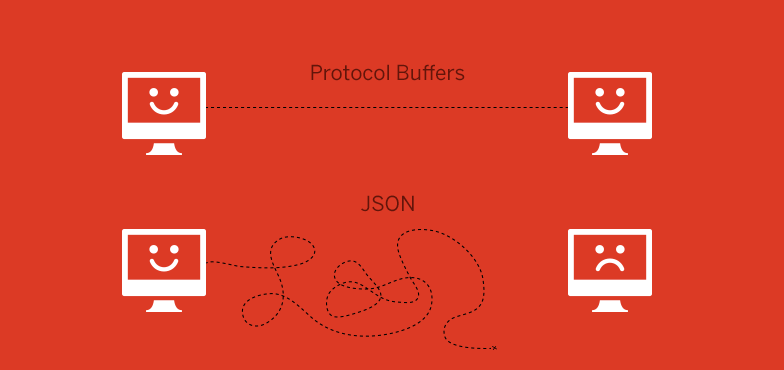Benchmarking gRPC+Protobuf vs HTTP+JSON in Go

Simplest possible solution for communication between services is to use JSON over HTTP. Though JSON has many obvious advantages - it’s human readable, well understood, and typically performs well - it also has its issues. In the case of internal services the structured formats, such as Google’s Protocol Buffers, are a better choice than JSON for encoding data.
gRPC uses protobuf by default, and it’s faster because it’s binary and it’s type-safe. I coded a demonstration project to benchmark classic REST API using JSON over HTTP vs same API in gRPC using Go.
This repository contains 2 equal APIs: gRPC using Protobuf and JSON over HTTP. The goal is to run benchmarks for 2 approaches and compare them. APIs have 1 endpoint to create user, containing validation of request. Request, validation and response are the same in 2 packages, so we’re benchmarking only mechanism itself. Benchmarks also include response parsing.
I use Go 1.9 and results show that gRPC is 10 times faster for my API:
|
|
CPU usage comparison
Restart applications, then use profiling tool pprof during 30 sec when the client is talking to the server with these commands:
|
|
Run tests to get client connections. Then in each pprof run top to see CPU usage.
My results show that Protobuf consumes less resources, 30% less.
Test it by your own
If you want to test it by yourself you can clone this repository and run the following commands:
|
|
Conclusion
It’s totally clear that for internal-only communication it’s better to use gRPC, your client calls will be much cleaner, you don’t have to mess with types and serialization, because gRPC does it for you.
